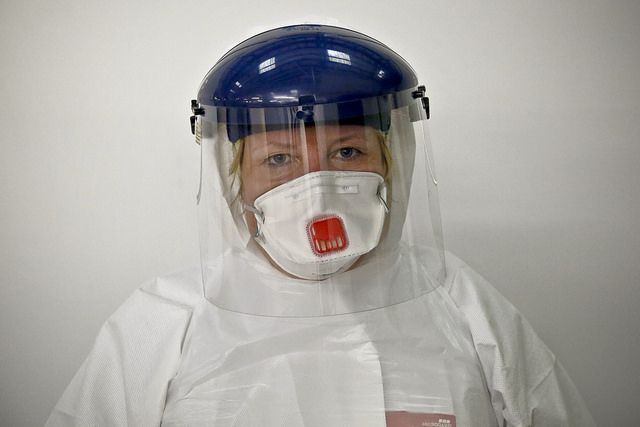Another Ebola-Like Pandemic Could Sink Global Economy While Destroying Lives, Public Health Systems: Report

The Ebola crisis in West Africa revealed our world’s deficiencies in preventing, preparing for, and responding to an infectious disease emergency. To address these shortcomings, an international group of experts in finance, governance, health systems, and the social sciences wrote a 144 page report examining global preparedness for another such crisis.
The Neglected Dimension of Global Security asserts a worldwide infectious disease disaster would not only harm human lives but also damage national security and economic stability. Specifically, the authors of this report, the Commission on a Global Health Risk Framework for the Future, estimates total economic losses as averaging more than $60 billion per year.
What's Ahead?
Along with Ebola, the world has faced several infectious disease emergencies over the past 15 years, including SARS (severe acute respiratory syndrome), MERS (Middle East respiratory syndrome), and the H1N1 influenza virus. Looking to the future, the commission's view is bleak.
At least one pandemic — a far-reaching, possibly worldwide spread of infectious disease — will emerge over the next 100 years, estimates the commission, with a 20 percent chance of seeing four or more.
To protect against such threats, the commission says, national governments must reinforce their public health capabilities and infrastructure, because regional or even global capabilities do not compensate for national or local level insufficiencies. This requires governments to prioritize investment in their health systems, as part of their duty to protect their people. Communities must also prepare, given their vital role in outbreak detection and response.
Both measures must be taken by one and all, even fragile states. During the Ebola crisis, the commission explains, Uganda demonstrated that it is possible to strengthen health systems and contain an infectious disease outbreak even in places where resources are scarce.
Yet, the impact of a disease outbreak goes far beyond human health alone, says the commission. Infectious disease epidemics do kill millions of people yet they also cause trillions of dollars of damage to economic activity. Few other events can damage the economy so much.
For this reason, the commission recommends spending approximately $4.5 billion per year to build up the world’s defenses. The largest slice of the pie would go to public health infrastructure and capabilities for low- and middle-income-countries; the commission estimates this will cost up to $3.4 billion per year. The second biggest investment would be $1 billion per year to fund accelerated research and development of medical products. The balance would finance the World Health Organization (WHO) and fund World Bank contingency funds.
Among the recommendations (and there are many), the commission suggests WHO generate a high-priority watch list of outbreaks that have the potential to become international public health emergencies.
“Preventing and preparing for potentially catastrophic pandemics is far more effective — and ultimately, far less expensive — than reacting to them when they occur, which they will,” said Peter Sands, the chairman of the commission and a senior fellow at the Harvard Kennedy school. The commission, an independent body, was organized by the U.S. National Academy of Medicine.



























